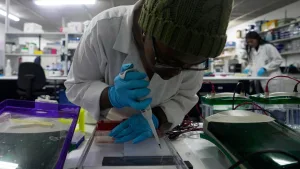The Ongoing Battle Against Thalassemia: A Global Health Challenge
In an era defined by unprecedented medical advancements, it’s a stark paradox that certain health challenges, like Thalassemia, continue to persist and demand our unwavering attention. While medical science reaches new peaks, the fight against this genetic blood disorder remains a critical global health concern.
Understanding Thalassemia
Thalassemia is an inherited blood disorder characterized by the body’s inability to produce sufficient hemoglobin, a protein in red blood cells that carries oxygen. This deficiency leads to anemia, causing fatigue, weakness, and other serious complications.
Types of Thalassemia
- Alpha Thalassemia: Involves genes related to alpha-globin protein.
- Beta Thalassemia: Involves genes related to beta-globin protein.
Severity Levels
- Thalassemia Major: The most severe form, requiring regular blood transfusions.
- Thalassemia Minor: Individuals are carriers and may experience mild or no symptoms.
Global Impact
Thalassemia affects millions worldwide, with higher prevalence in regions such as the Mediterranean, Middle East, South Asia, and Southeast Asia. The condition poses significant challenges to healthcare systems and families affected.
Challenges in Developing Countries
- Limited access to diagnosis and treatment.
- High cost of blood transfusions and medical care.
- Lack of awareness and genetic counseling services.
Advancements in Treatment
Despite the challenges, advancements in medical science offer hope for improved treatment and management of Thalassemia.
Current Treatment Options
- Regular Blood Transfusions: To maintain hemoglobin levels.
- Iron Chelation Therapy: To remove excess iron from the body due to transfusions.
- Bone Marrow Transplantation: A potential cure for some patients.
- Gene Therapy: Emerging as a promising treatment approach.
Prevention and Awareness
Prevention through genetic screening and counseling plays a crucial role in reducing the incidence of Thalassemia.
Key Prevention Strategies
- Premarital Screening: To identify carriers.
- Prenatal Diagnosis: To detect the condition in unborn babies.
- Genetic Counseling: To provide information and support to families.
Final Words
The fight against Thalassemia requires a multi-faceted approach, including continued research, improved access to treatment, and enhanced prevention strategies. By raising awareness and promoting early detection, we can collectively work towards a healthier future for those affected by this challenging genetic disorder.



+ There are no comments
Add yours